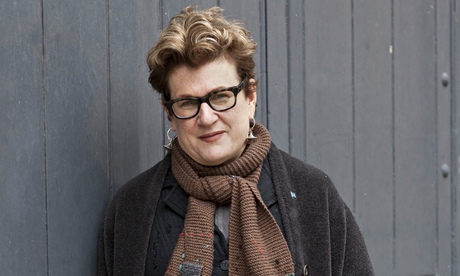In 1921, the writer and activist Catherine Amy Dawson Scott founded PEN in London, to bring writers together and provide a space in which they might share ideas, and discuss them. “It occurred to me that out of social intercourse comes understanding,” she wrote, “and that if the great writers of the world met in friendship and exchanged ideas, a nascent kindliness would deepen.”
PEN centres have since been created around the world, and the membership has supported thousands of writers who have been imprisoned, persecuted, harassed, simply for the act of putting words on a page. Writer-to-writer solidarity – ranging from prison visits to protests, lobbying to letter writing – is at the heart of what PEN is and what it does.
As president of English PEN, I feel a deep sense of privilege to be able to play a part in this story. Over many years I have sent books and written letters to those unlawfully imprisoned, and some I have even visited, like my dear friend Ahmet Altan, who remains incarcerated in a high security prison near Istanbul. Like so many others, he has not stopped writing, and made it clear that the contact of others keeps him going, keeps him strong. Thousands of writers have added their names to open letters, petitions and campaigns in support of writers at risk across the globe. Such acts make a difference. They shame the authorities and offer hope to the persecuted.
In the context of today’s global pandemic, when those living in enclosed environments are likely to be more vulnerable to disease, PEN’s concern for our writer colleagues and friends in detention around the world is even more acute: the rise of authoritarianism and attacks on writers make the work of PEN more important than ever. Our calls on governments across the world to release so many authors, journalists, publishers, poets, bloggers, songwriters and others who speak and write and think, detained in violation of their individual right to freedom of expression, need to be louder and clearer and stronger than ever before.
In July the 12th PEN Pinter prize, in memory of the long-standing member Harold Pinter, was awarded to Jamaican-born poet Linton Kwesi Johnson, who has been a beacon since my teenage years. And this week, the prize was shared with an International Writer of Courage, chosen by Johnson: the Eritrean poet, critic and editor Amanuel Asrat. Arrested more than 19 years ago, in September 2001, Asrat’s whereabouts is unknown.
In announcing his fellow winner, Johnson expressed a deep sense of outrage and pain. “Keeping a citizen incarcerated, incommunicado, without charge or trial for nearly 20 years is the kind of egregious brutality that we associate with totalitarian states and dictatorships,” he said. His choice was “a gesture of solidarity from a poet of the African diaspora”.
In 2021 English PEN will mark its centenary. As part of that celebration, we are launching PENwrites – a year-long letter-writing campaign. We are inviting you to join us, celebrating and supporting writers of courage across the globe – including Asrat, our International Writer of Courage and first featured writer. Please act to be a part of a community of solidarity and hope, to ring the bells for freedom of expression for all of our writer colleagues around the world, more threatened today than ever before.
To find out more visit the English PEN website englishpen.org/pen-writes.











